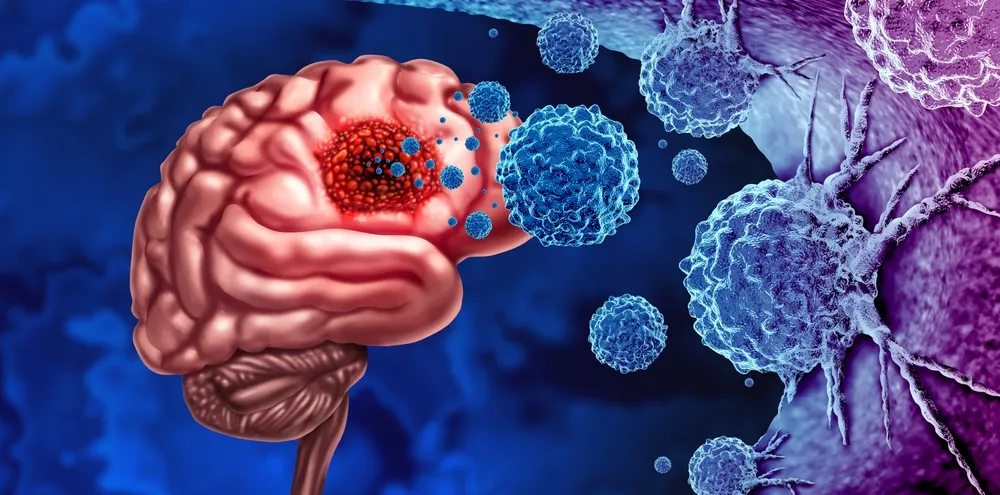If you or someone you know has been diagnosed with cancer, you must have heard the term"“metastasis."” Brain metastasis, particularly, occurs when the cancerous cells detach themselves from the primary tumor, travel through the bloodstream or the lymphatic system, and settle in the brain. Although metastatic tumors are usually composed of the same type of cancer cells as the primary tumor, they might develop new mutations.
The brain is one of the most prevalent sites for metastases. Brain metastasis affects one out of every four cancer patients. Furthermore, brain metastases are the most common type of brain malignancy among adults. Although cancer can travel to the brain, the most common sources of brain metastases are cancers of the lungs, breasts, kidneys, or colon.What Are The Symptoms Of Brain Metastasis?

The common symptoms of tumors spreading in the brain are:
Seizures
Numbness
Problems with balance and coordination.
Problems with speech.
Occasionally, headaches are accompanied by nausea or vomiting.
Dizziness
Confusion, memory loss, and personality changes, vision impairment; are all symptoms of cognitive decline.
How is Brain Metastasis Detected? When the primary malignancy is recognized, brain metastasis may be discovered. Alternatively, if a person exhibits symptoms, a doctor may suggest specific testing based on those symptoms. Computed tomography (CT) and magnetic resonance imaging (MRI) scans are examples of tests. How Can It Be Treated?Surgery, radiation, and pharmaceutical therapy are the most common therapies for brain metastasis.
The type of treatment is determined by several factors, including the type of primary cancer diagnosed, the number of tumors and their location in the brain, the genetic mutations discovered in cancer cells, the person's health, previous treatments, and other considerations. People may also think about participating in a clinical experiment when it comes to treatment. Clinical trials are a viable option for cancer patients at any stage.
If the number of metastasis is small, the disease is under control, and the patient is in good general health, surgery is frequently regarded as the first option. Radiation therapy, such as radiosurgery and whole-brain radiation, may be suggested. Radiosurgery is a widespread treatment when cancer has progressed to only a few locations. Whole-brain radiation therapy is usually the best therapeutic option when people have significant lesions deep in the brain or multiple lesions throughout the brain. To minimize adverse effects, the treatments are spread out over several weeks.
Chemotherapy is only used in a small percentage of cases to treat brain metastasis. Some persons with brain metastasis have benefited from targeted therapy and immunotherapy. People will often use steroids to assist in minimizing edema.Discuss all treatment choices with your doctor. Treatment side effects and tumor(s) can often be managed with the support of your healthcare provider and the team of people who look after you.
This is referred to as palliative or supportive care, an essential part of the overall treatment. Where To Seek Help? Dr. Vijay P Karan Reddy is the best Oncologist in Hyderabad. He understands the connection patient forms with their doctor and strives to maintain this trust by providing quality care and accurate diagnosis, irrespective of the patient's financial situation. He has several years of experience in handling complex brain cancer cases. For a detailed consultation, book an appointment today!

